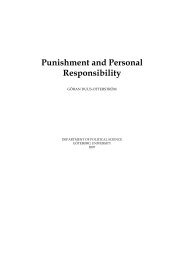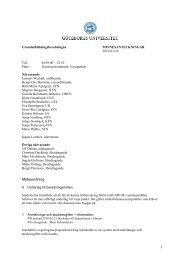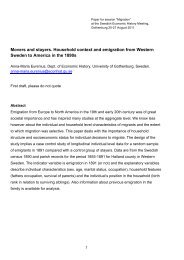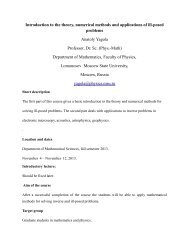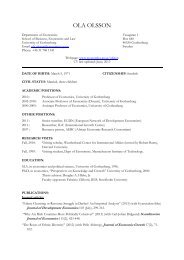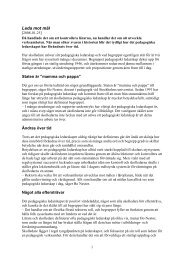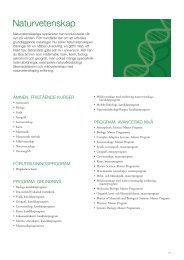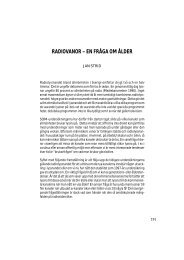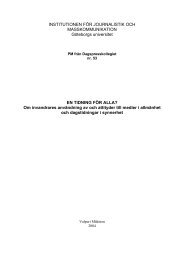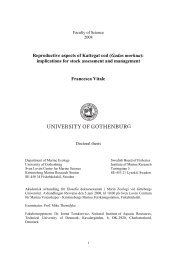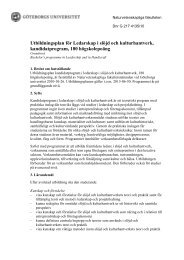Equal Opportunities Work - Theories about Practice
Equal Opportunities Work - Theories about Practice
Equal Opportunities Work - Theories about Practice
Create successful ePaper yourself
Turn your PDF publications into a flip-book with our unique Google optimized e-Paper software.
analysis of sexual harassment to use the gender perspective at the structural level<br />
in the form of a perspective relating to sex/gender and power.<br />
This reveals a structural imbalance between the sexes in an organization.<br />
The organization is run by men and is shaped on the basis of their needs.<br />
Sexual harassment is one of the mechanisms underpinning the maintenance of<br />
this male supremacy, and is an example of what happens when the freedom of<br />
maneuver of the underrepresented sex is reduced and controlled. What we are<br />
now discussing is sex/gender at the structural level, although there are, of<br />
course, individual women and men whose actions will not correspond to this<br />
description.<br />
Human identity is extremely complex. We are corporeal beings,<br />
autonomous agents, social, communicators, etc.36 When we relate gender to<br />
our identity, we must examine the relationship between sex/gender and each of<br />
these aspects. And they must be examined both individually and in their<br />
interrelations. For instance, regarding the relationship between gender and<br />
socialization gives rise to other analytical problems than examining the<br />
relationship between gender and autonomy. In addition, we must distinguish<br />
between gender in the structural sense and gender as one aspect of human<br />
identity.<br />
Above, we have discussed power at the structural level, for instance power<br />
in its capacity as the influence of the organization on its members when it<br />
comes to jargon or the social atmosphere. Sexual harassment is often, in fact,<br />
part of that jargon or atmosphere.<br />
Moving on to examine sex/gender as one aspect of our identity at the level<br />
of the individual psyche, the discussion of power shifts to a different level.<br />
Here, what is at issue is how we experience power, i.e. power as apprehended<br />
"from inside". This may be referred to as power in the phenomenological<br />
sense, power as perceived through our experience. Let us now link power in<br />
the phenomenological sense to sexual harassment. How is this form of exercise<br />
of power experienced<br />
"from inside"?<br />
Naturally, a person subjected to sexual harassment may react in any number<br />
of different ways, and there are risks associated with generalizing. However, it<br />
is not unusual for the situation to be experienced as uncertain and vague, in<br />
spite of the belief that we "know" what things are like for the underrepresented<br />
sex in an organization characterized by inequality. A person subjected to<br />
harassment often loses his or her footing and becomes confused. He or she<br />
36 See Mark, Eva., Siiitvbilder och jagkonstitution,Acta Philosophica Gothoburgensia, no.7, 1998. ("Selfimages<br />
and Ego Constitution")<br />
43




